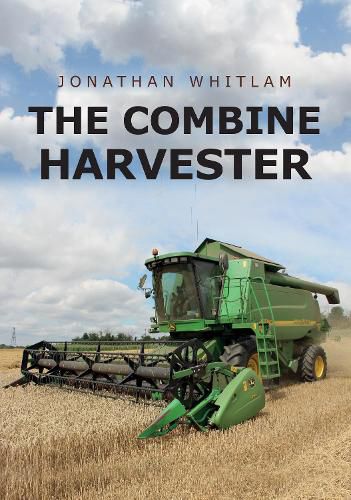Readings Newsletter
Become a Readings Member to make your shopping experience even easier.
Sign in or sign up for free!
You’re not far away from qualifying for FREE standard shipping within Australia
You’ve qualified for FREE standard shipping within Australia
The cart is loading…






This book tells the complete story of one of the most significant agricultural inventions of all time-the combine harvester. Starting with the early straw walkers and rotary models, the author charts the chronological evolution of these complex machines which soon became indispensable to the cereal farmer. The author shows how the combine developed into the huge modern machine, capable of processing hundreds of acres of wheat in a day. The story of the combine harvester is meshed with the cereal harvest, starting with first mechanisation of the harvest with the sail reaper, moving through to the binder and then the threshing drum. The book describes the early arrival of the combine harvester in the shape of the reaper-thresher in the USA and then smaller more compact trailed versions that were also used in Europe. The self-propelled combine arrived in the 1940s which is when the idea really began to take off. The book looks at the various different makes of combine harvester such as those produced by Case, New Holland, International Harvester, John Deere and Massey Ferguson and discusses what the future holds for the combine harvester, including advanced designs and driverless drones. Accompanied by a wide variety of new colour photographs, this book will appeal to farm machinery enthusiasts and those interested in the development of modern industrial machinery.
$9.00 standard shipping within Australia
FREE standard shipping within Australia for orders over $100.00
Express & International shipping calculated at checkout
This book tells the complete story of one of the most significant agricultural inventions of all time-the combine harvester. Starting with the early straw walkers and rotary models, the author charts the chronological evolution of these complex machines which soon became indispensable to the cereal farmer. The author shows how the combine developed into the huge modern machine, capable of processing hundreds of acres of wheat in a day. The story of the combine harvester is meshed with the cereal harvest, starting with first mechanisation of the harvest with the sail reaper, moving through to the binder and then the threshing drum. The book describes the early arrival of the combine harvester in the shape of the reaper-thresher in the USA and then smaller more compact trailed versions that were also used in Europe. The self-propelled combine arrived in the 1940s which is when the idea really began to take off. The book looks at the various different makes of combine harvester such as those produced by Case, New Holland, International Harvester, John Deere and Massey Ferguson and discusses what the future holds for the combine harvester, including advanced designs and driverless drones. Accompanied by a wide variety of new colour photographs, this book will appeal to farm machinery enthusiasts and those interested in the development of modern industrial machinery.